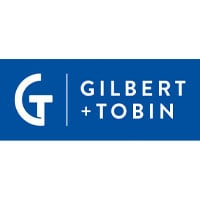

General Counsel | JD Sports Australia






Neil Sher
General Counsel | JD Sports Australia
Growing retail store network: since the beginning of the pandemic, we have successfully facilitated the opening of 17 new retail JD Sports stores across Australia and New Zealand with an additional 10 stores opening in 2022 across the regions. These transactions reflect 113 percent growth of our retail store network, despite the repeated lockdowns across various regions at different times and global impacts to our supply chains. By taking the lead on negotiations with landlords, we have been able to secure necessary fitout extensions and deferred opening dates, without penalty. Most notably in the case of our first New Zealand site, which was deferred by approximately a year due to travel restrictions.
Temporary store closures and cash flow reduction: of our 24 retail stores operating nationally before the pandemic, we were forced to temporarily shut all but 3 during lockdowns. Despite not falling under the National Cabinet’s Mandatory Code of Conduct for Commercial Leasing for rent relief, we successfully negotiated various rent relief positions with landlords. These negotiated positions contributed to JD Sports’ cash flow reduction strategies, which enabled us to continue paying our full and part time retail staff, despite the store closures and ability for staff to be stood down.
Supporting ongoing retail trade: as part of recent negotiations, we have secured multiple offsite storage areas with landlords at no additional charge, or where licence fees are charged, they are included in the computation of turnover rent. This is a substantial win for retailers as it allows us to overtrade stores without being charged twice for licence fee and increased turnover rent.
Automated document preparation and management: technological advancements centred around automation will have the most impact on the role of in-house legal teams. Particularly, automated document preparation and artificial intelligence for document review. Traditionally, in-house teams are the gatekeepers of a company’s contracts. Automated preparation and management of standardised documents will shift the responsibility for preparing and managing certain contracts to the commercial teams. In-house legal teams will still be required during negotiation, but commercial teams will have greater independent access to information and control over contract administration.
Using artificial intelligence for document review: manual document review is time-consuming. Artificial intelligence through machine learning and pattern recognition will be increasingly utilised as part of due diligence and to quickly and accurately determine red flags and inconsistencies in contractual provisions for closer review. These technological advancements will ‘free-up’ in-house legal teams to provide greater strategic and advisory support to the business. In-house legal teams will become gatekeepers of these automated systems and will need to rapidly upskill in the same way required when computers replaced typewriters, which replaced writing by hand.
General counsel | JD Sports Fashion Australia